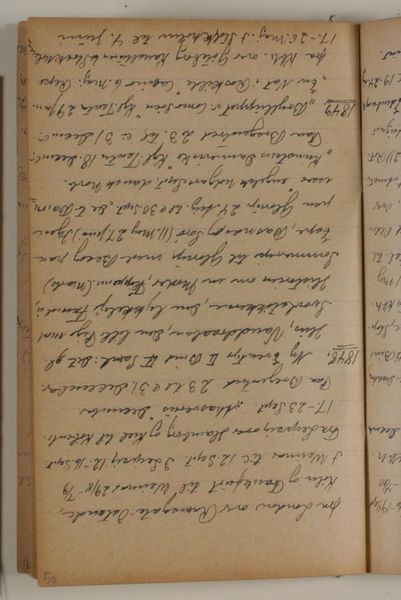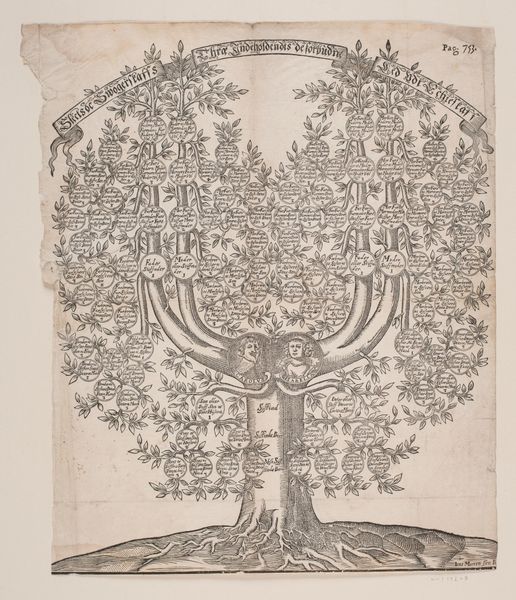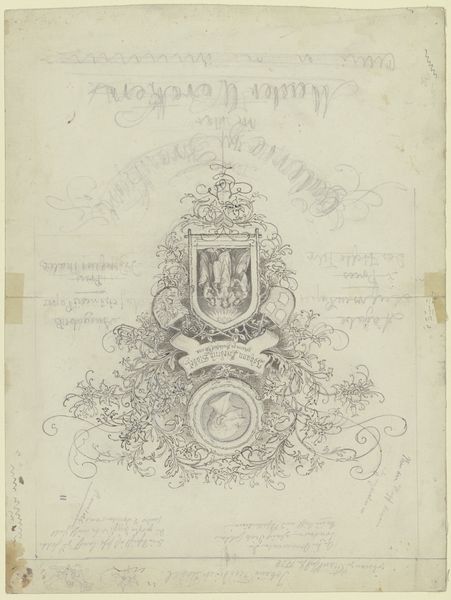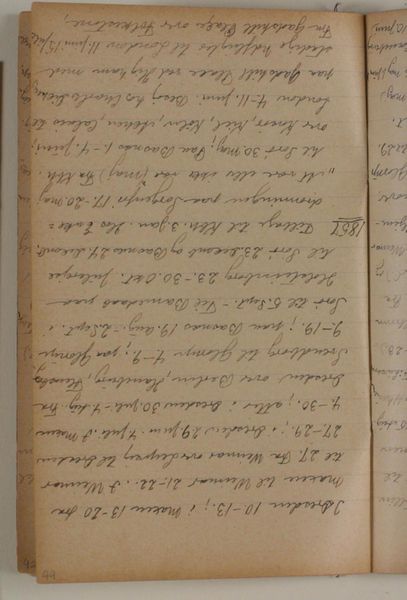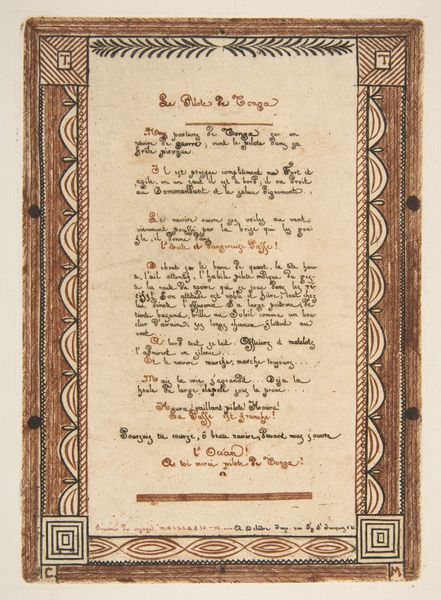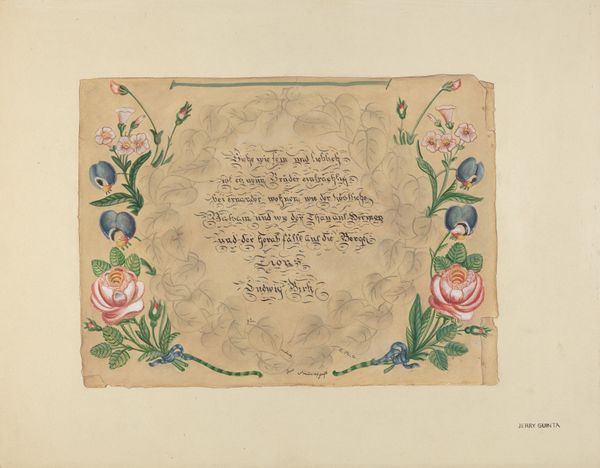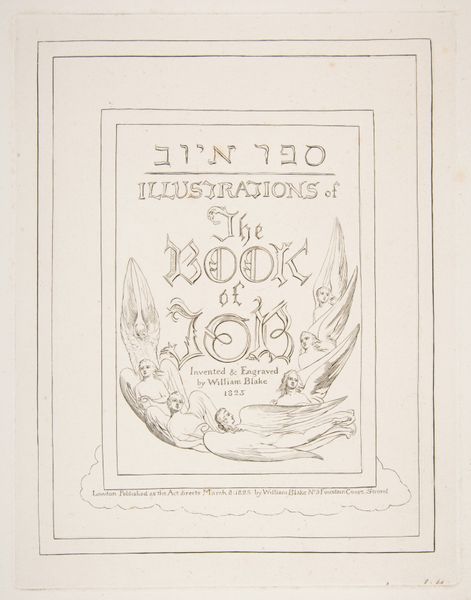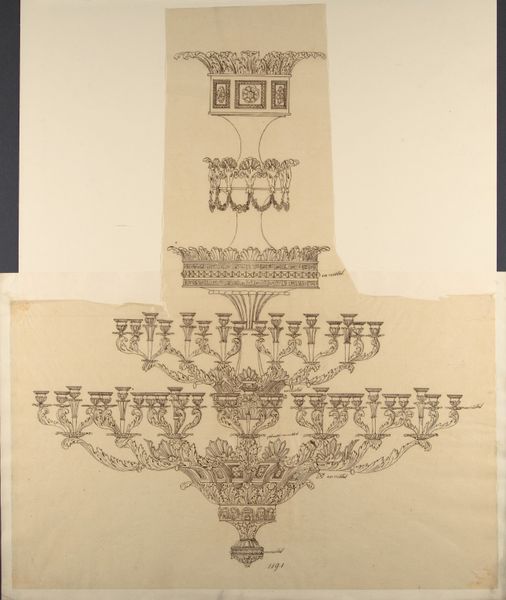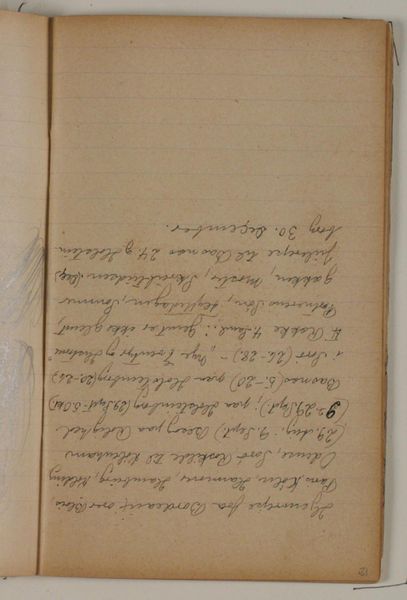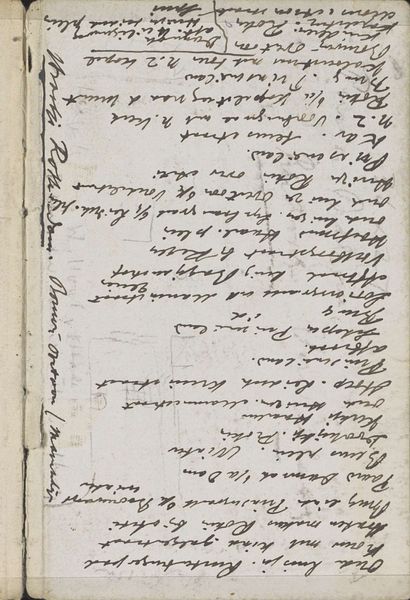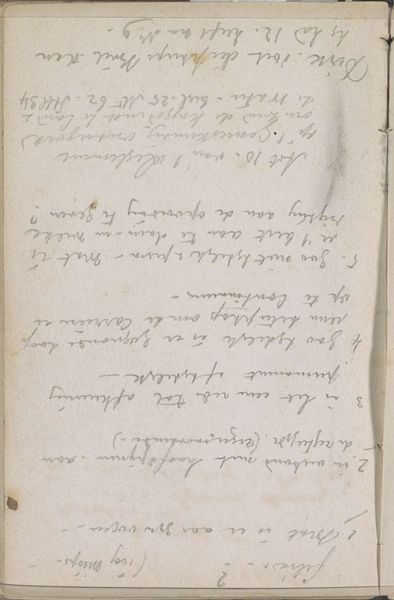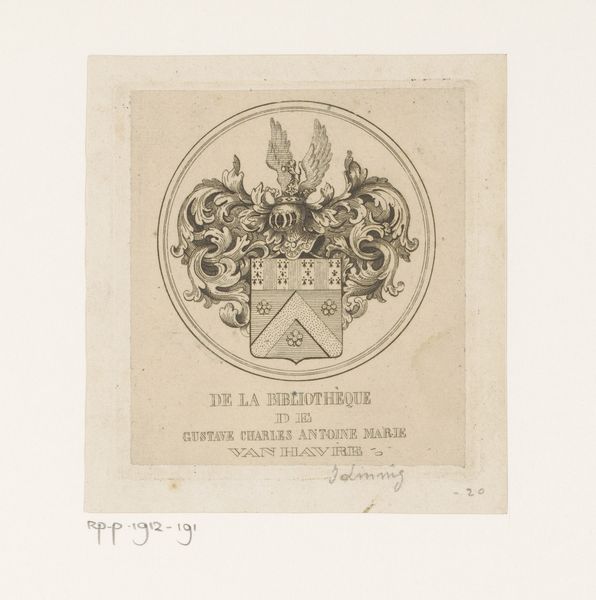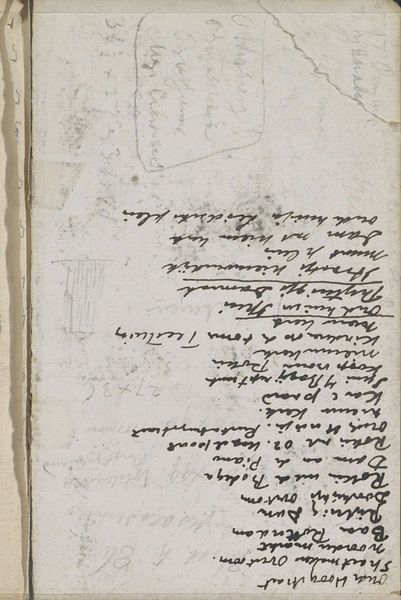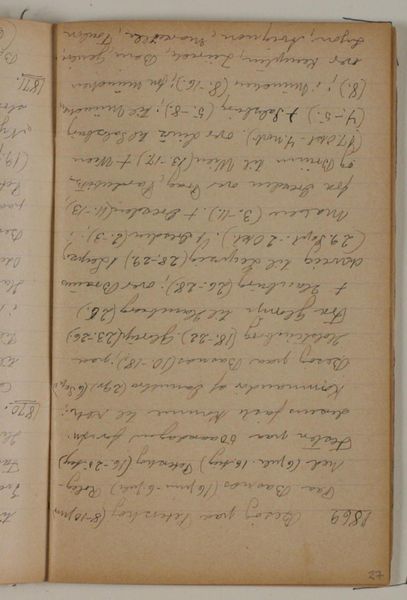
drawing, mixed-media, textile
#
drawing
#
mixed-media
#
organic
#
landscape
#
textile
#
folk-art
#
organic pattern
#
france
#
decorative-art
Dimensions: 51 3/4 × 15 9/16 in. (131.45 × 39.53 cm)60 1/4 × 24 7/16 × 2 3/8 in. (153.04 × 62.07 × 6.03 cm) (outer frame)
Copyright: Public Domain
This undated Passover towel at the Minneapolis Institute of Art is a textile work of unknown origin. Its vertical composition is divided into three registers, each densely filled with motifs and text that invite a structural analysis. The rose wreath at the top frames an idyllic scene, contrasting with the heraldic emblem in the center. Here, two lions flank a crowned shield, rendered with careful symmetry. Below, a floral arrangement mirrors the upper wreath, creating a visual echo that binds the piece. The textiles’ decorative elements and Hebrew inscriptions form a complex semiotic system. The meticulous arrangement of text and image suggests a symbolic order, reflecting the ritualistic nature of Passover. Note the interplay between organic and geometric forms, a tension that destabilizes any singular interpretation. The towel’s visual elements function as a series of signs, inviting ongoing interpretation and cultural discourse around faith and identity.
Comments
minneapolisinstituteofart almost 2 years ago
⋮
This cushion cover and towel set would have been used in an elite Jewish home in the Alsace region of eastern France to celebrate the Passover Seder. During the meal, it is customary for important individuals to eat reclining in imitation of sumptuous Roman feasts when elites ate reclining on sofas. This gesture issues a reminder of the time in Jewish history when they were liberated from their enslavement in Egypt, and is meant to inspire feelings of gratitude for the fruits of freedom. This cushion cover would have contained a large cushion that was placed on the chair back of the male head of household. The decorative towel would have been used to cover utilitarian towels used during the Seder hand-washing ceremonies.
Join the conversation
Join millions of artists and users on Artera today and experience the ultimate creative platform.
